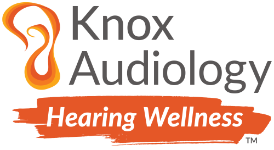Communication Strategies: How Can They Help and What Are They?

Effective communication is essential in everyday life, but it can become increasingly challenging for those with hearing loss. Adopting the right communication strategies can make conversations clearer and more enjoyable if you have hearing loss yourself or are communicating with someone who does. Understanding these strategies and how they can help can significantly improve social interactions and overall quality of life. At Knox Audiology, we know how much of a difference these strategies can make for people with hearing loss, so we have put together our top communication strategies.
The Importance of Communication Strategies
Hearing loss can lead to frustration, misunderstandings, and social withdrawal1. By implementing communication strategies, individuals with hearing loss and their loved ones can foster better conversations, reduce strain, and maintain meaningful connections. These strategies not only complement the use of hearing aids but also help bridge communication gaps in various listening environments.
Key Communication Strategies
1. Face the Person You Are Speaking To
Visual cues, such as facial expressions and lip movements, are essential for individuals with hearing loss. Facing the person ensures they can see your lips and expressions, which aids in understanding speech.
2. Speak slower, not louder
There is no need to shout. Instead, speak at a moderate pace and enunciate your words clearly. Raising your voice too much can distort sounds and make comprehension more difficult.
3. Reduce Background Noise
Loud environments can make it harder to focus on conversations. Turning off the television or moving to a quieter space can significantly improve communication.
4. Rephrase Instead of Repeating
If someone with hearing loss does not understand what you said, try rewording your sentence instead of repeating the same phrase. Different words or a simpler sentence structure can make comprehension easier.
5. Use Assistive Listening Devices
In addition to hearing aids, assistive listening devices such as personal amplifiers or captioning services can enhance communication in challenging situations.
6. Get the Listener’s Attention First
Before speaking, say the person’s name or gently touch their arm to get their attention. This prevents them from missing the first part of the conversation.
7. Encourage Two-Way Communication
Encouraging individuals with hearing loss to express when they are struggling to hear allows for better adjustments and fosters patience on both sides.
8. Be Patient and Positive
Miscommunication can happen, but remaining patient and supportive helps create a comfortable and stress-free conversation.
Hearing Aids are Part of the Strategy, Not the Whole Strategy
While hearing aids can significantly improve speech clarity, they are most effective when used alongside communication strategies. While hearing aids enhance sound, they cannot eliminate background noise or replace the importance of good communication habits. For example:
- Your voice needs to reach the hearing aid to be enhanced. Speaking clearly and facing the listener ensures the sound is picked up effectively.
- The most effective range of a hearing aid is up to around 2 metres. Standing too far away or speaking from another room reduces the effectiveness of the hearing aid.
- We hear with our ears and our eyes. Facial expressions, lip movements, and body language contribute to effective communication and reinforce the spoken message.
By integrating hearing aids with good communication strategies, individuals with hearing loss can maximise their listening experience and engage more fully in conversations.
The Role of Hearing Aids and Audiologists
While communication strategies are invaluable, they work best when paired with the appropriate hearing technology. Hearing aids, including invisible hearing aids, can significantly enhance speech clarity and reduce listening fatigue. A hearing aid specialist or audiologist can assess an individual’s needs through a hearing test and recommend the best hearing solution.
Take Action for Better Communication
If you or a loved one are experiencing hearing difficulties, seeking professional guidance is the first step to improving communication. At Knox Audiology, our experienced audiologists are experts in communication strategies that can help you convey your message. We provide expert advice, comprehensive hearing tests, and the latest hearing aid technology to support your hearing journey.
Book an appointment today by calling us on 03 9800 5697 or book online to find out how effective communication strategies, combined with the right hearing solutions, can transform your everyday interactions..
